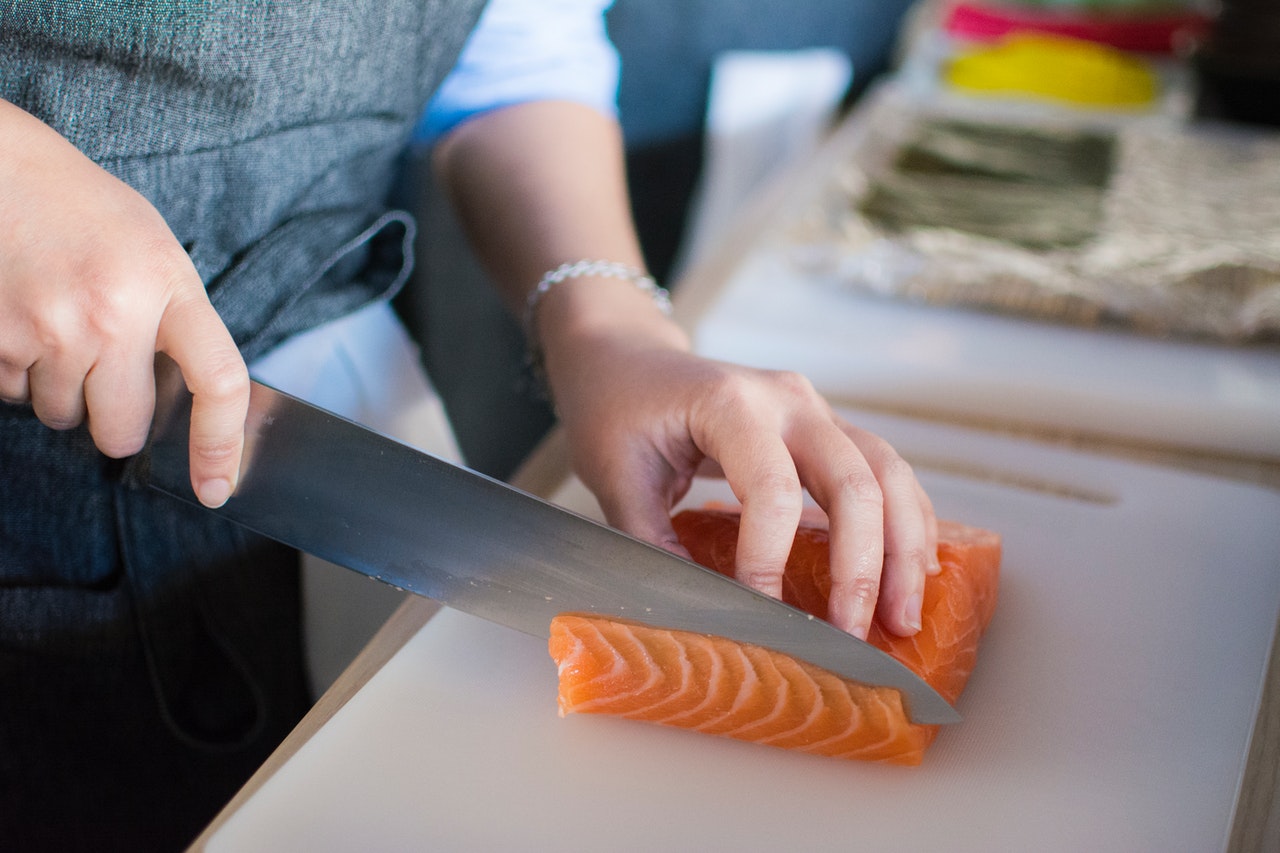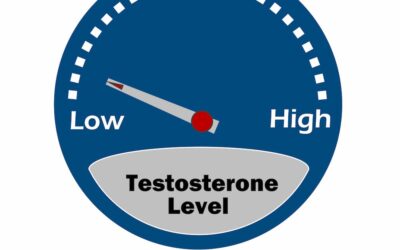Searching for evidence-based data on foods that boost testosterone naturally? This is actually one of the most searched terms by men on the topic of testosterone. Before moving to physician-prescribed therapies like testosterone therapy, men often look for natural ways to boost their testosterone by changing their diet and by making other adjustments to their lifestyle. Don’t worry, we’ve got you covered. First, let’s take a look at what testosterone is, its role in your body, and how low testosterone levels can affect your daily life.
What is Testosterone and How Can Low-T Impact Your Life and Well-Being?
Testosterone is a sex hormone. It is responsible for the development of sexual characteristics in men. During puberty, testosterone levels spike. This rapid increase causes the hallmark changes of puberty: growth spurts; growth of body, pubic, and facial hair; increases in muscle mass; and male fertility.
In addition to its role in sexual development, testosterone is present in high concentrations in adult males. In adults, testosterone contributes to overall health and well-being.
Benefits of Testosterone
Testosterone in adults promotes masculinity. Testosterone sustains your sex drive, helps you build and maintain muscle mass, and strengthens your bones. Testosterone also aids in the production of sperm and red blood cells.
Testosterone has other effects as well. Testosterone is related to another sex hormone, estradiol. In men, testosterone can be converted to estradiol or it can act directly on the body. Estradiol helps balance overall fat distribution. It also plays a role in sex drive and erectile function.
Symptoms of Low Testosterone in Men
Low testosterone is also called Low-T. Low-T is fairly common and can occur naturally as we age. After age 30, your body slows down its testosterone production. Other causes for Low-T include testicle infections, chemotherapy and other drug-related side effects, and alcohol or drug dependency.
As you might imagine, Low-T can produce predictable symptoms based on its role in the body. For example, normal levels of testosterone regulate sexual drive, so men with Low-T will have a decrease in their sexual drive. Likewise, Low-T can cause erectile dysfunction and decreases in muscle mass and bone density.
Low-T can also cause you to put on weight, especially belly fat. Remember, testosterone can be converted to estradiol, so the symptoms of Low-T will also include symptoms of estradiol deficiency.
Finally, Low-T has also been shown to cause fatigue, irritability, and depression.
If you are experiencing any of these symptoms, you might have Low-T. The good news is treatment is available and safe! Contact Ehormones MD to schedule a consultation to see if testosterone replacement therapy is right for you.
Read on for tips about boosting testosterone naturally.
Foods That Boost Testosterone Production in Men
Testosterone therapy is one treatment option that can be very effective in treating Low-T. Changes to diet, exercise, and other lifestyle choices can also impact testosterone production. Most professional athletes can’t take advantage of testosterone therapy due to anti-doping regulations, so nutrition is extremely important. Let’s take a look at different foods that increase testosterone production in men.
Foods That Decrease Testosterone
Before we dive into foods that increase testosterone, let’s take a quick look at dietary choices that do the opposite. These are foods to avoid if you have Low-T or are concerned about your testosterone levels.
Research has shown that highly processed foods tend to decrease testosterone production. Bread and pastries are the number one offenders. Start by reducing your consumption of breads if you want to naturally increase testosterone.
Other foods that reduce testosterone include dairy, desserts, and restaurant foods. All of these food groups tend to be highly processed. (Some dairy products are only minimally processed, while others are highly processed.)
Conversely, homemade foods were associated with increased testosterone production. Let’s look at the specifics.
Meats and Fish That Increase Testosterone
One interesting study found that a keto diet increased testosterone levels. This strongly suggests that diets rich in protein and fats can naturally improve testosterone.
However, not just any meat will automatically increase testosterone. Another study thoroughly examined consumption of red meat and testosterone levels. There was some relationship between total meat and testosterone level, but testosterone levels varied widely. More interesting was the quality of the meat. The study showed that unprocessed red meat increased testosterone levels, while processed red meat had little effect on testosterone. This continues to underscore the importance of eating higher-quality foods in general.
Fish are also good for testosterone production. Fish oil, specifically, has been shown to increase testosterone. So, you can eat any fish high in oil to help boost your testosterone. Or, just take a fish oil supplement. There are many supplements available now that provide all the benefits of fish oil without any of the unpleasant side effects. (I’m talking about those awful “fishy burps” that plagued fish oils for so long.)
It’s also worth mentioning that your primary protein source matters. In one study, participants switched their primary dietary protein to either meat or soybeans (tofu). The men eating soy had lower testosterone levels, and the men eating meat had higher levels. This is important, because it shows that that overall nutrition matters. It isn’t just about eating enough protein; that protein has to come from the right source. Fish or meat, preferably unprocessed and cooked at home, will show the greatest benefit to testosterone production.
If you’re a vegetarian, don’t worry! There are other foods you can incorporate into your diet to help your body naturally increase its testosterone production. And you can delight in the fact that you’re probably eating fewer processed foods and cooking more meals at home! Now, let’s see which veggies increase testosterone in men.
Vegetables That Increase Testosterone
Unfortunately, one study found that a typical vegetarian diet is associated with lower testosterone levels in men. Another study, however, contradicts these findings. The second study found no significant difference between a vegetarian and a meat-based diet on testosterone levels.
This is important because it brings us back to one of the main themes of our investigation: The quality of food consumed is more important than the type of food. Remember, we talked about soybeans (the main ingredient in tofu)? Soybeans tend to be highly processed. “Typical vegetarian diets” in the United States rely heavily on tofu as a source of protein.
The first study looked only at participants who were already eating a vegetarian diet. Thus, it did not control for the quality of food they consumed. The second study used the vegetarian diet as an intervention. Thus, the subjects were switched from their normal diet to a vegetarian diet. The quality of food given was likely equivalent to the quality of food given on the meat diet. Thus, no difference was observed.
There haven’t been any studies that look at specific vegetables that affect testosterone production. However, we can conclude that unprocessed foods are better than processed foods. If you’re a vegetarian, and you’re concerned about Low-T, it might be worth reducing the amount of tofu you eat.
In the next section, we’ll discuss the role of healthy fats, which increase testosterone in men. Vegetarians tend to consume less fat than omnivores, but they can consume plenty of healthy fats by eating more nuts. In fact, consumption of hazelnuts was shown to improve testosterone levels!
Benefits of Healthy Fats and the Impact on Testosterone
There is some controversy regarding the role of fat in testosterone production. One study showed eating large quantities of fat can reduce or even halt testosterone production. However, additional studies have shown the opposite.
Earlier we discussed the role of a keto diet in promoting testosterone production in men. In addition, a more recent study examined the role of macronutrients in testosterone production. Researchers noted that higher fat diets increased testosterone levels in men. The researchers looked at both total fat and saturated/unsaturated fats. Saturated and monounsaturated fats showed a large increase in testosterone levels. Polyunsaturated fats, however, showed a sharp decrease in testosterone concentration.
The conflicting research here may be confusing, but it shouldn’t be. Let’s unpackage the information a bit to make things clearer. The first study is somewhat dated. This doesn’t invalidate the results; rather, it gives us context. This study was performed over 30 years ago. In that 30 years, our knowledge of nutrition has expanded significantly. For example, we now know that some fats are healthy, while others… well, not so much.
Now, the other two studies were performed more recently. Keto diets, while high in fat, tend to reduce processed foods, including foods high in polyunsaturated and trans fats. And the other study looked at multiple macronutrients; it didn’t just isolate fat as the one factor contributing to testosterone production. What this tells us is that healthy fats improve testosterone production, while unhealthy fats reduce testosterone.
Sound familiar? This has been a trend in the research we’ve explored today. Unhealthy processed foods lower testosterone. Unprocessed homemade meals increase testosterone. Don’t be fooled if someone tells you that fat reduces testosterone. Sure, unhealthy fats might. But if you’re on a keto diet or just eat a lot of unprocessed nuts and meats, that will increase testosterone.
Complex Carbohydrates Increase Testosterone Production
Earlier, we talked about the negative impact of bread on testosterone. That particular study showed that processed foods reduced testosterone levels in men. Among the worst offenders were bread, pastries, and desserts. These foods are all chock-full of simple carbohydrates. Simple carbohydrates kill testosterone levels!
The good news is that whole grains and legumes boost testosterone levels! This means you can ditch the bread and replace it with long-grain rice or quinoa. As we’ve mentioned time and again in this analysis, unprocessed foods and homemade meals are great for boosting testosterone naturally. It really is that simple.
Vitamins and Minerals That Might Increase Testosterone
So far, we’ve talked about different food groups that increase testosterone. Let’s zoom in a little bit and talk about specific nutrients that are involved in testosterone production.
Zinc is a natural mineral and a micronutrient necessary for healthy functions of many body systems. Zinc is involved in testosterone production. Make sure you’re getting enough zinc in your diet. Many dietary supplements and multivitamins contain zinc. One good food that contains plenty of zinc is shellfish. Try adding more shrimp, crabs, or oysters to your diet.
Another nutrient involved in testosterone production is vitamin E. Like zinc, vitamin E is found in many dietary supplements and multivitamins. Foods with high levels of vitamin E include nuts, vegetable oils, and leafy greens.
Vitamin C can also improve testosterone production. Rather, it can help prevent problems with testosterone production. Vitamin C is a powerful antioxidant, and it can stop cellular damage that may interfere with your body’s ability to generate enough testosterone. Vitamin C can be found in high quantities in citrus fruits (of course!), bell peppers, and broccoli.
Additional Lifestyle Choices That Can Increase Testosterone
Diet isn’t the only way to improve testosterone production. Additional lifestyle choices can help stimulate testosterone. First, make sure you get plenty of healthy, restful sleep. Second, take time to exercise and stay in shape. Obesity can initiate or exacerbate Low-T. Finally, reduce your total stress levels. Make sure you can manage all the stress in your life and seek psychological help if you get overwhelmed or experience symptoms of depression or anxiety.
Recap
Testosterone is your friend! It contributes to your sex drive, energy levels, muscle mass, and overall sense of well-being. Low-T is a condition that lowers your body’s natural testosterone levels and impairs your sex drive, erectile function, and body composition.
Low-T is a treatable condition, and diet can help. The most important lesson about diet in combating Low-T is to eat healthy, unprocessed foods. Most macronutrients can either increase or decrease testosterone depending on the quality of the foods you eat. Likewise, making additional healthy life choices can improve your body’s natural ability to produce testosterone. Make sure you’re getting enough sleep and have plenty of time to exercise and maintain a healthy weight.
If you still have symptoms of Low-T, testosterone therapy can help. There are a long list of science-backed benefits that may help in your research. This proven physician supervised therapy will boost your testosterone levels with minimal side effects. Contact us to schedule your consultation today. Our nationwide physicians can provide a comprehensive testosterone therapy plan to meet the unique needs of your body to help you feel like yourself again!





